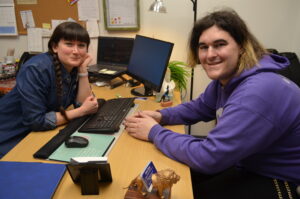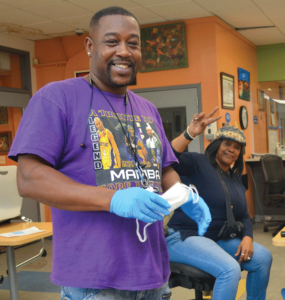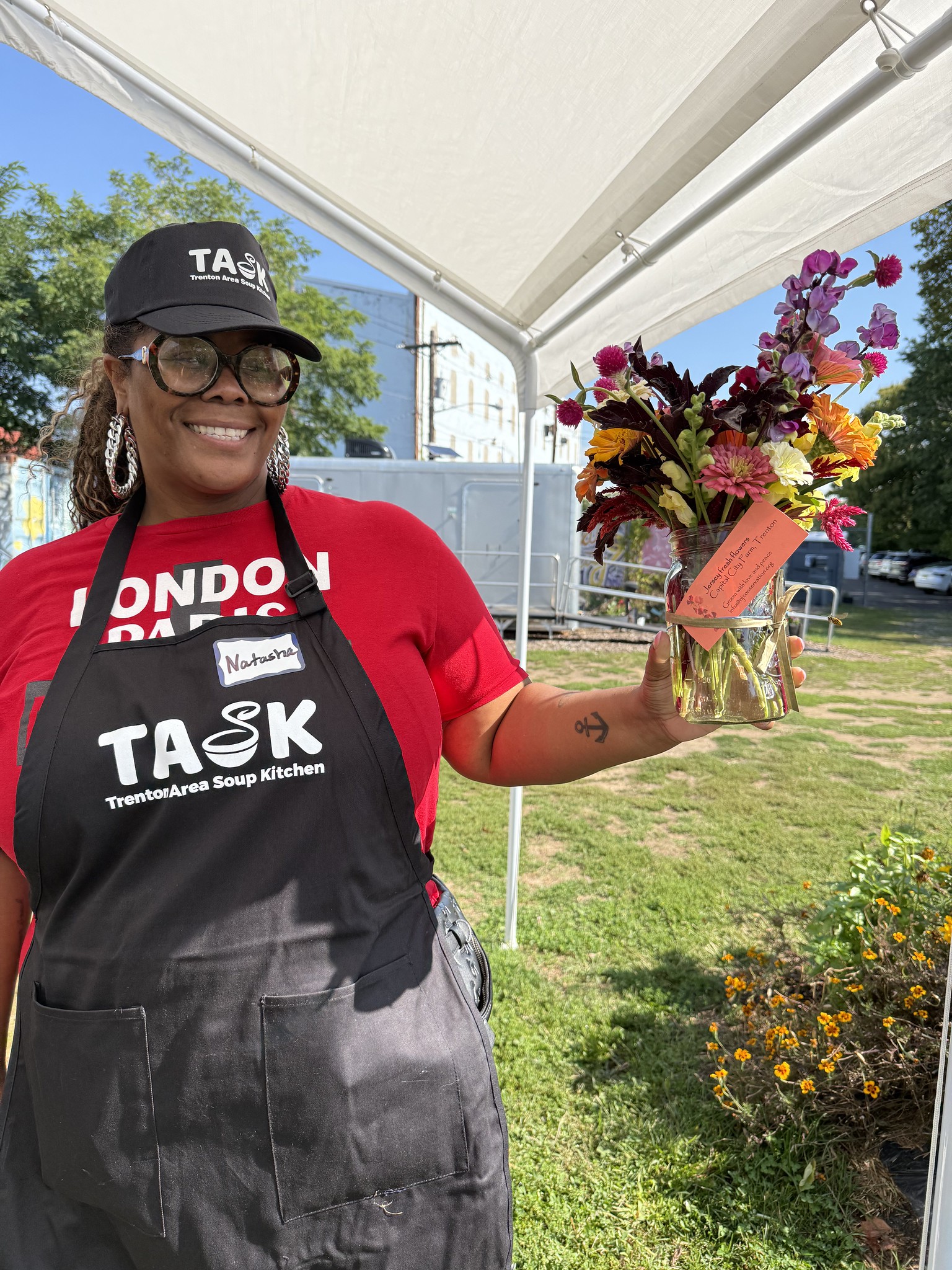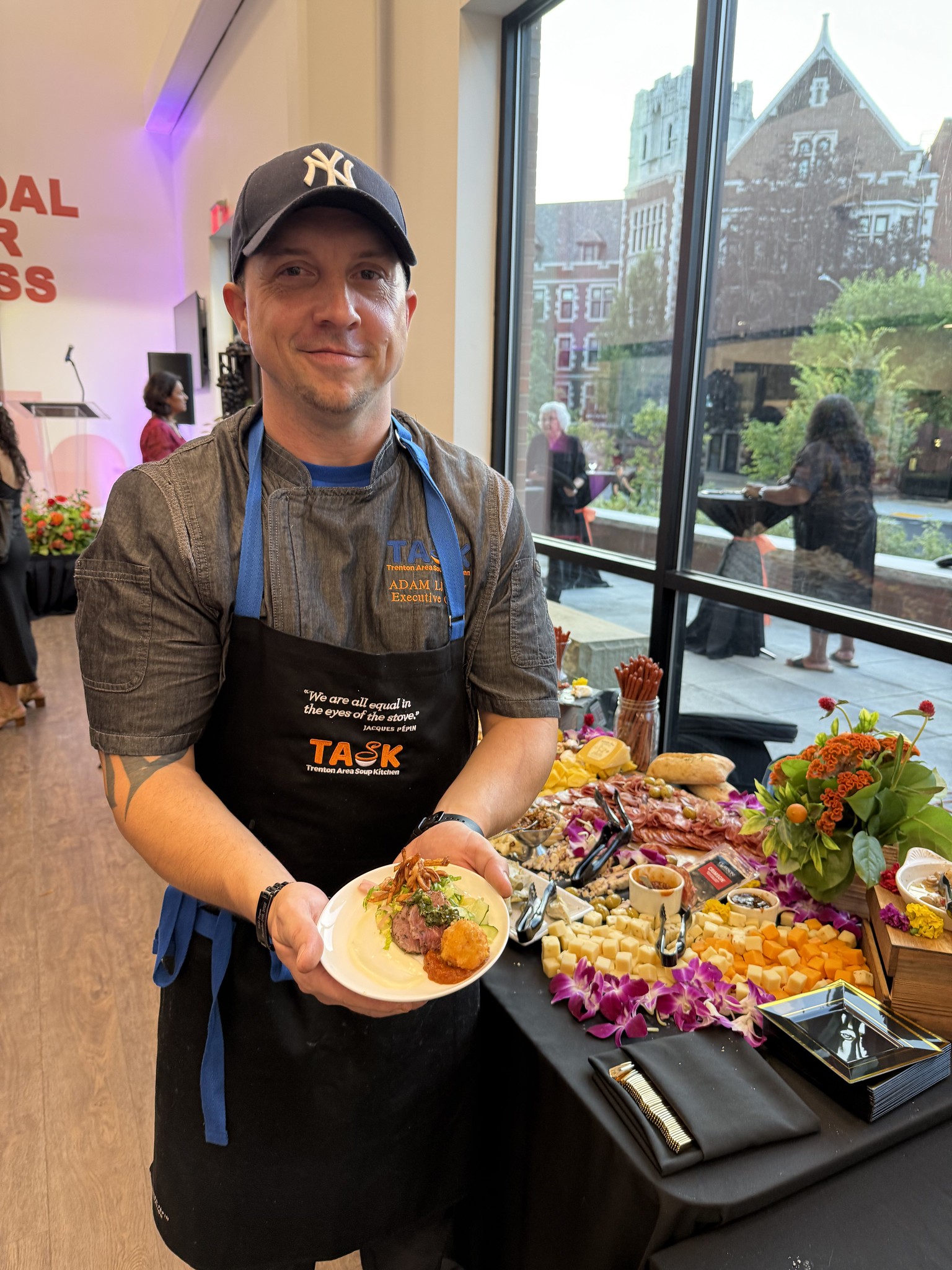News, Events & Stories
Radical Hospitality Brings Empathy to the Forefront
Since our founding 41 years ago, TASK has always sought to do more and do it better. From meal service to adult education to case management, we are committed to learning and changing so that we can always do the best to meet the needs of the people we serve.
To that end, the soup kitchen’s new strategic plan sets out many goals including a concept called “radical hospitality.”
“TASK has always strived to serve our patrons with dignity and respect, because everyone deserves to eat, and everyone deserves to be treated kindly,” says Joyce Campbell, TASK’s Executive Director. “Radical hospitality takes things a step further. It empowers everyone – staff, volunteers, and leadership – to meet our patrons’ needs.”
Our goal is to put radical hospitality at the center of everything we do. We pledge to put extraordinary effort into making people feel welcome at TASK. It also means that empathy is at the heart of our process.
All TASK staffers are required to attend online training from the Homeless Training Institute, a program designed by Ryan Dowd, author and former director of a Chicago homeless shelter. The classes — which focus on topics like building trust and de-escalating conflict — are designed to empower staff to communicate with patrons leading with empathy, not punishment, and to treat them with dignity, honor and respect. The program has helped more than 2,000 organizations and nonprofits improve relationships with the people they serve.
“The training helps us understand that we need to treat people with as much empathy as possible,” says Jaime Parker, TASK Director of Programs and Patron Services.
“The golden rule is to treat people the way you want to be treated. The platinum rule is to treat people the way they want to be treated.”
Continues Parker, “Trauma-informed care is an essential characteristic of radical hospitality. Instead of asking someone, What’s wrong with you?, it encourages staff to seek to understand, What happened to you?”

Trauma-informed care also helps patrons to recognize and identify their own trauma, how it might affect their current situation and how they can best move forward with their lives beyond the basic needs of food, water and shelter. It gives patrons the chance to improve their long-term health and well-being.
“It takes the onus off the individual and looks at the fact that something happened in their life that may explain why they think, feel and act a certain way,” Campbell says.
Radical hospitality also extends to volunteers. In TASK’s volunteer orientation video, Parker encouragers volunteers to be courteous, patient and kind when serving our patrons.
“Patrons may not always reciprocate that behavior, as they live very stressful lives,” explains Parker. “But it has nothing to do with you.”
If part of radical hospitality is helping patrons on their terms, it’s becoming increasingly important that we must speak their language.
Since late last year, TASK has seen an influx of patrons who only speak Spanish. As a result, a number of staff members are now signed up for conversational Spanish lessons twice a week for 10 weeks through a partnership with the Mercer Institute of Management & Technology Training, in order to better assist these patrons.
“If we can bridge that communications gap, it’s going to make our services better,” Parker says.
TASK’s radical hospitality policy has already helped TASK adjust our approach to service, which was notable during the holiday season.
At Thanksgiving, our patrons were given several options: get their Thanksgiving meal delivered; make an appointment to pick one up; or come in on a first-come, first-served basis.
“Part of our approach is that we tried different methods so we could maximize the number of people who wanted a turkey, but to give them away where you don’t have to stand in line for five hours. That’s not dignified,” Parker says.
The philosophy also changed the way holiday gifts were distributed. For both adult gift giveaways and the children’s Holiday Shop, patrons signed up in advance and selected from gifts laid out in the cafeteria.
“We’re not going to pick out a present for a child because we think they would want it,” Parker says.
This approach also recognizes that the ability to exercise choice is rare for many folks experiencing financial and food insecurity. In the dining room, TASK ensures that diners have the ability to make choices during meal service, including options like the fully-customizable salad bar and coffee and tea service.
But the concept of radical hospitality means very little if its not fully embraced by everyone. TASK staff recognize its importance to the patron experience.

Custodian Raheem Hickmond has often been recognized for leading with radical hospitality. A regular fixture in the dining room during meal service, Hickmond goes beyond his typical custodial duties to provide exceptional customer service to TASK diners. Whether he’s helping to clear off tables or connecting someone with another staff member, Hickmond understands the value of an empathetic approach.
“It feels good knowing I helped somebody else, especially someone older than me. Whatever they need, I’ll help them.”
“Most of them just want to know if they could get help because they’ve been denied so many times [other places]. They get denied, they give up, so they come here,” Hickmond says.
“They might be more comfortable explaining to me what they need. Once they talk with me, they feel more comfortable and I’m able to help them. I’ve been there before. You can help people a lot better if you’ve been where they’ve been.”



